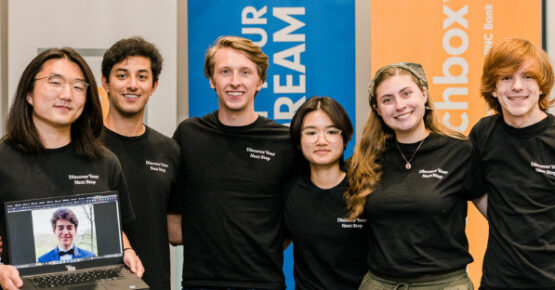Making Entrepreneurship Accessible in Rural America
Unlocking untapped potential.
Invent Penn State was based on the belief that rural areas are actually teeming with the entrepreneurial talent, innovative ideas, and community spirit needed to cultivate a thriving local economy. Individuals just needed access to local business support, resources, and encouragement to unlock their potential.
But as locations started offering services, we began to see that it was more complicated than just providing access for some communities.
A key, unexpected, learning was that for individuals living in rural communities struggling economically, access was not enough.
Making resources accessible can change the game, but it is not sufficient in and of itself.

Entrepreneurship starts with belief.
Before individuals will seek support, they must first believe that business ownership is a viable option for them.
Those living in economically depressed areas, and especially those who have experienced decades of economic hardship, often don’t envision business ownership in their future.
Trust is a critical component to access.
Individuals must also believe that the institution providing services is trustworthy and without an ulterior motive or agenda. This, too, can become entangled with years of being, and feeling, excluded or not welcome.
In short, belief that entrepreneurship is a viable pathway and trust in the institution providing support are necessary precursors to seeking that support.
Learning this lesson was a critical step in better understanding the needs of many entrepreneurs in rural and underserved communities.
Access alone isn’t sufficient.
With this understanding came the realization that the focus on access alone did not take into account the unique challenges and hurdles that many groups faced when it comes to starting a business.
Leaders and staff who deeply understood the needs of their communities, and who established trusted relationships with community members and partners, quickly saw the need to start with “belief” for their communities. Read more about this in the Mon Valley LaunchBox mini case study.
And when they had the freedom to define their own next steps, they were better positioned to begin building trust and creating viable entrepreneurial options to meet their community’s needs.
Building inclusive entrepreneurial ecosystems.
There is an ongoing effort to help LaunchBox staff expand their ability to identify and address gaps in services, especially with regard to groups that have historically had limited, or no, access to business support services. This includes individuals in rural areas, women, minorities, individuals with mobility or visual impairments, and LGBTQ+ individuals.
We are working to generate awareness and share best practices for building inclusive entrepreneurial ecosystems. Inclusive ecosystems are places where everyone:
- experiences a feeling of belonging and acceptance,
- has access to programs and services that help to de-risk and accelerate their ventures, and
- feels that their perspective and contribution is valued.
Building a shared understanding.
We have brought in internal and external experts to raise awareness around the unique challenges faced by underrepresented entrepreneurs, to develop a shared understanding of the growing diversity of today’s entrepreneurs, and to share best practices and strategies for identifying, connecting to, and building trust and belonging with underrepresented communities.
The lens is helping us to uncover untapped potential and build programs that support more individuals across the commonwealth.
Discover More
Dive deeper into the eight critical actions that are foundational for building entrepreneurial ecosystems that support rural communities.
- Start with engaged leadership
- Encourage and reward experimentation
- Look for common gaps in services and start there
- Provide centralized support to promote growth and scaling
- Bring an inclusive lens to everything you do
- Avoid couching success through traditional economic development metrics
- Focus on sustainability early
- Focus on culture, not physical space

Read a special note from the Kauffman Foundation about the value of the Playbook.

